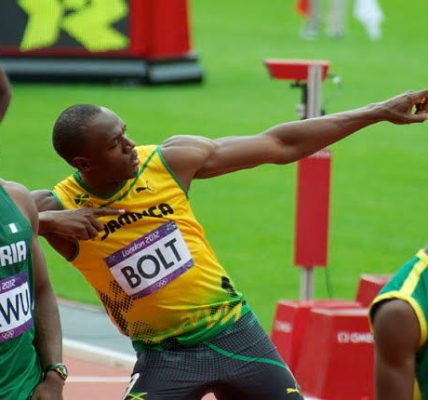Skip to content
Brazilian police raid in Rio leaves at least 64 dead and 81 arrested
What happened
In a large-scale operation on Tuesday, security forces in Rio de Janeiro, Brazil, targeted the notorious criminal faction Comando Vermelho in the favela complexes of Complexo do Alemão and Penha Complex.
The raid involved around 2,500 police and military personnel, backed by helicopters and armoured vehicles, according to official sources. (KPBS Public Media)
Authorities say the operation resulted in at least 64 people dead — including four police officers — and 81 suspects arrested. (People.com)
The state government noted that 93 rifles and more than half a ton of drugs were also seized. (www.ndtv.com)
Governor Cláudio Castro of the state of Rio de Janeiro declared the operation “the biggest in the city’s history,” asserting that the suspects killed had engaged in armed resistance. (KPBS Public Media)
The setting and context
The raid took place in the dense favela terrain of Complexo do Alemão and Penha — neighbourhoods long controlled or contested by Comando Vermelho. (euronews)
Comando Vermelho has been expanding its territorial influence from the prisons into urban slums in recent years. (euronews)
Reports indicate that the operation followed about a year of investigations and planning. (KPBS Public Media)
In reaction, local media cited blockades, commandeered buses and widespread disruption of transport as gang members attempted to strike back. (euronews)
Why this raid stands out
There are multiple reasons this operation is being described as exceptional:
-
The scale of participation (2,500+ personnel) and use of heavyequipment (armoured vehicles, helicopters) mark it beyond typical police raids. (KPBS Public Media)
-
The death toll is unusually high for operations of this nature in Rio. Analysts have described the numbers as “war-like”. (euronews)
-
The geographic location: The two targeted favela complexes sit in the northern zone of Rio de Janeiro, in proximity to major routes and infrastructure, which may elevate tactical and strategic importance.
-
The timing, with international eyes on Rio ahead of major global gatherings, adds extra focus to security operations.
Reactions and controversies
Government & security
Governor Castro highlighted the raid as an indispensable blow against organised crime, framing it as a fight against “narco-terrorism”. (People.com)
The state’s civil police referred to the suspects who were killed as having “resisted police action”. (KPBS Public Media)
Human rights, civil society & critics
But the operation has drawn sharp criticism from human rights organisations:
-
The United Nations Office of the High Commissioner for Human Rights said it was “horrified” by the operation and urged investigations into every death. (KPBS Public Media)
-
Human Rights Watch in Brazil described the events as “a huge tragedy” and insisted on full transparency and accountability from public prosecutors. (www.ndtv.com)
-
The Instituto Marielle Franco (named after slain Rio city councillor Marielle Franco) criticised the raid as an “extermination policy”, warning that residents of favelas (many of whom are Black and poor) face a daily life equivalent to “Russian roulette”. (KPBS Public Media)
-
Sociologist Luís Flávio Sapori from the Pontifical Catholic University of Minas Gerais warned that high-lethality raids often fail to disrupt the leadership of criminal groups, simply replacing lower-rank foot soldiers. (KPBS Public Media)
Impact and immediate consequences
-
Schools: The city’s Education Department closed 46 schools across the two neighbourhoods during the operation. (KPBS Public Media)
-
University: The nearby Federal University of Rio de Janeiro cancelled night classes and issued shelter-in-place orders. (euronews)
-
Transport disruption: Reports say at least 70 buses were commandeered by gang members for blockades, causing widespread disruption. (euronews)
-
Public security: The raid signals a bold escalation in the state’s approach to organised crime — but also raises the risks of escalation, community push-back, and long-term consequences for residents.
Why this matters beyond Rio
-
Symbolic message: For authorities, this operation has been framed as a signal that Rio’s state government will no longer tolerate the territorial expansion of powerful organised-crime factions like Comando Vermelho.
-
Policy questions: Critics say the heavy-handed approach may bring short-term disruption, but without simultaneous investments in social infrastructure, policing risk simply fueling cycles of violence and undermining trust in the state.
-
Human rights concerns: The sheer scale of fatalities in a single day raises alarms about proportionality, due process and civilian safety — especially in densely-populated low-income favela communities.
-
Regional & global ripple: With Rio being a major global city, and Brazil playing a key role in Latin American security dynamics, such operations attract international attention — both as indicators of success and as potential flashpoints for rights violations.
The tough questions ahead
-
Will the masterminds or higher echelons of Comando Vermelho be captured, or will they simply re-organise?
-
What happens for the residents of the favelas once the operation ends: will there be a sustained state presence in terms of policing plus social, economic and educational supports?
-
How will the state respond to calls for independent investigations and transparency regarding the deaths and conduct of the operation?
-
Is the model of high-lethality raids sustainable — or does it risk deeper community alienation and future violence?
This massive police raid marks a dramatic escalation in Rio’s battle with organised crime.
With at least 64 dead and 81 arrested, it demonstrates the state’s willingness to deploy overwhelming force in a favela setting.
Yet, the scale of the violence and the location raise serious questions about long-term strategy, civilian impact, and rights protections.
In coming days and weeks, attention will turn to how the authorities document and investigate the operation, how the gang responds, and whether the raid leads to tangible reductions in crime or simply a brutal episode in a larger cycle of violence.



